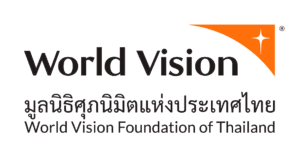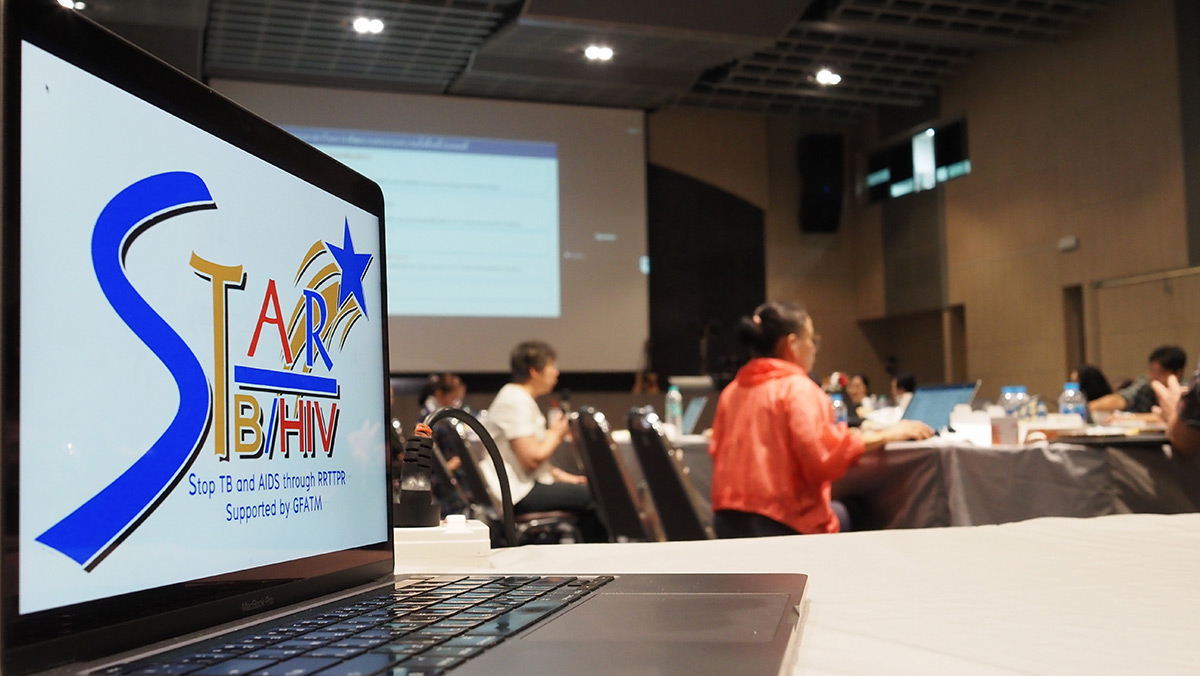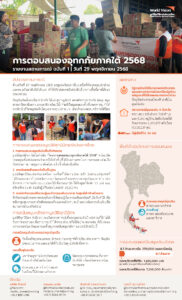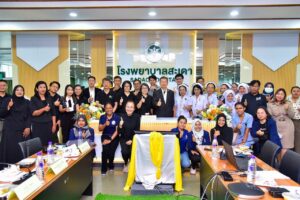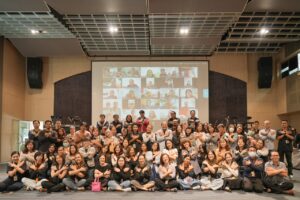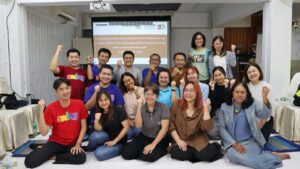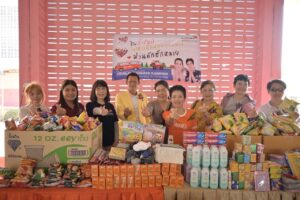The World Vision Foundation of Thailand hosted the 3rd meeting to monitor and support the operations of the main recipient agencies of the Global Fund in the implementation of the Stop TB and AIDS through RRTTPR year 2024-2026 (STAR 4). The meeting was attended by 3 main recipient agencies: the World Vision Foundation of Thailand, Raks Thai Foundation, and the Global Fund Project Management Office, Department of Disease Control, Ministry of Public Health, along with representatives from the Tuberculosis Division, AIDS and Sexually Transmitted Disease Division, Department of Disease Control, Ministry of Public Health, and the Global Fund Thailand representative. The meeting aimed to reflect on the results of the work to end TB and AIDS, as well as to exchange operational approaches to drive the work to reach key population groups effectively and achieve results.
HIV infections continue to rise in Thailand and globally, with a significant increase in new cases among adolescents aged 15-24. Globally, approximately 13% of all people living with HIV are adolescents. In Thailand, according to the Department of Disease Control, Ministry of Public Health, there were 9,100 new HIV infections in 2023, with a majority occurring among 15-24 year-olds. The primary causes were unsafe sex and the sharing of contaminated needles.
To achieve the targets and strategies set for eliminating TB and AIDS by 2030, a community-based, people-centered, integrated approach has been implemented. This approach will focus on creating friendly services for key populations, strengthening community systems, and addressing human rights and gender-based barriers to accessing health services. The approach also involves developing mechanisms to support essential knowledge, techniques, and policy driving, ensuring that key populations such as migrants, men who have sex with men, transgender, sex workers, and their partners have equitable and non-discriminatory access to tuberculosis and HIV services.
Dr. Nyan Win Phyo, GF PR-WVFT Project Manager, Migrant Population Group, Sub-district Administrative Organization of the Sub-district Administrative Organization, reflected on the challenges of working with key target groups, especially migrant populations . “There are many cases that we have encountered in our fieldwork in migrant communities, such as a migrant family that we met. The father, mother, and youngest child are all HIV-infected. Only the oldest child is not infected. From the interview, we learned that the oldest child was born in a hospital with infection control, but the youngest child was born at home without any protection and did not receive prenatal care. This family’s case reflects the social determinants of health of the Thai health system, especially in terms of access to basic health services, including the rights of children of migrant populations. According to the process, birth registration is more complicated than births in a hospital, which is also a concern for children’s rights.”
For key populations diagnosed with both HIV and TB, the project will facilitate access to healthcare services, including antiretroviral therapy and preventive treatment for latent tuberculosis. Additionally, the project promotes knowledge and prevention measures to reduce the risk of transmission to family members and the community, while ensuring continuous care and follow-up for patients.
Mr. Pisut Pinyosinwat, Director of Project Quality, Raks Thai Foundation, talked about the challenges in related operations, saying, “ARV or antiretroviral drugs for those infected with HIV are very important. We try to refer patients, especially migrants, to register with state hospitals in their area so that they can access ARV drugs easily and conveniently because they need to receive continuous treatment. However, after the COVID -19 situation , the number of migrants entering Thailand has increased. The quota of ARV drugs for migrants is limited, or some health facilities in the area do not support the service. Many times, we have to take patients across provinces to access treatment. This is a systematic challenge in providing care so that patients can access and receive continuous treatment.”
In terms of the operations of the Department of Disease Control , it mentioned the work of reaching the main target groups . “The Department of Disease Control has distributed Oral Fluid HIV self-test kits to the target groups, starting in 4 provinces: Chiang Mai, Surat Thani, Chonburi and Nakhon Ratchasima. The strategy of using self-test kits reduces the burden on the target group, as they do not have to waste time and money traveling to the hospital, and also reduces language barriers for the migrant population in receiving health services,” Ms. Busaba Tantisak presented the results of the operations.
Another key issue discussed at the meeting was the establishment of a technical support mechanism to address human rights and gender-based barriers to accessing services. This aims not only to ensure that target groups can access their rightful healthcare services but also to promote campaigns and raise awareness about stigmatisation and discrimination against people living with HIV and TB. The goal is to enable these individuals to live full and productive lives within their communities, as TB is curable with proper medical treatment and for people living with HIV who are on effective antiretroviral therapy and have undetectable viral loads, the virus is untransmittable through sexual contact.
World Vision Thailand, a primary recipient of The Global Fund, partners with the network of 8 civil society organisations including MAP Foundation for the Health and Knowledge of Ethnic Labour, Stella Maris (STM), ALIGHT and Shoklo Malaria Research Unit (SMRU), Faculty of Tropical Medicine, Mahidol University, Dreamlopments Foundation, Foundation for Action on Inclusion Rights (FAIR) and Service Worker in Group Foundation (SWING) which are key drivers of this HIV and TB ending in 12 provinces with the following focuses:
- Building a community-based integrated service model for migrant populations
- Strengthening resilient and sustainable community systems
- Establishing a technical support mechanism to address human rights and gender-based barriers to accessing services
The project implementation covers 12 provinces: Bangkok, Nonthaburi, Pathum Thani, Chiang Mai, Chiang Rai, Tak, Kanchanaburi, Ratchaburi, Sa Kaeo, Ranong, Phuket and Songkhla.
The path toward sustainable elimination of TB and AIDS in this decade could revolutionise the delivery of people-centered services, integrating diverse sexual populations into equitable, accessible, and fair healthcare. Yet, this remains our great challenge.
